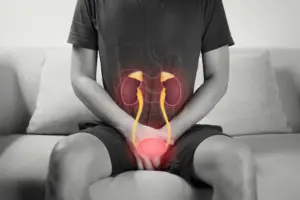
Painful urination: Let’s be real, no one is comfortable talking about peeing. But when it starts to burn or hurt, it’s your body’s way of telling you something’s off. This discomfort, known as dysuria, is more common than most people think and can affect both men and women.
In this guide, we will break down the potential causes of pain during urination and, more importantly, discuss what you can do to feel better.
What does painful urination feel like?
Painful urination can feel like a burning sensation, sharp pain, or stinging discomfort, as well as pressure before, during, or after urination. Some people might feel pain in the lower belly, pelvic area or even in the back, depending on the cause.
Also Read | Can sex cause UTIs? What you need to know and how to avoid them
Common causes of painful urination
- Urinary tract infection is the most common cause, especially in women. It happens when bacteria enter your urinary system. It can make urination feel like you are passing fire. Other signs of painful urination include needing to pee often, cloudy or smelly urine, lower belly pain or even fever or chills if the infection is severe.
- Sexually transmitted infections like herpes can cause pain when you are peeing. These infections often do not show any signs initially, which is why it is important to go for regular testing. Other symptoms might include unusual discharge, itching or burning in private areas or pain during sex. Don’t ignore it. Sexually transmitted infections are treatable, but you need the right medication from a doctor.

- Sometimes it’s not an infection; it’s just irritation. Irritating products can include bubble bath scented soaps and feminine hygiene sprays. Switch to gentle products.
- Kidney stones are tiny, hard deposits that form in your kidneys. When the stones start moving through your urinary tract, they can cause sharp, burning pain while you pee. You may experience a sharp pain in your back or lower belly, see blood in your urine, or have nausea.
- Vaginal infections in women can irritate the vaginal area. It might also make urination painful. Some common symptoms include discharge, itching, or swelling. You can use over-the-counter medications to treat yeast infections. For bacterial infections, you need a prescription.
Also Read | 5 common men’s health issues you should never ignore
While painful urination can be uncomfortable, it’s treatable if you catch it early. It isn’t something to ignore but your body’s signal that something may be wrong. Whether it’s a urinary tract infection, kidney stones, or another underlying issue, identifying the cause early can prevent further complications. If the discomfort persists, gets worse, or is accompanied by other symptoms like fever or blood in the urine, consult a healthcare provider.








